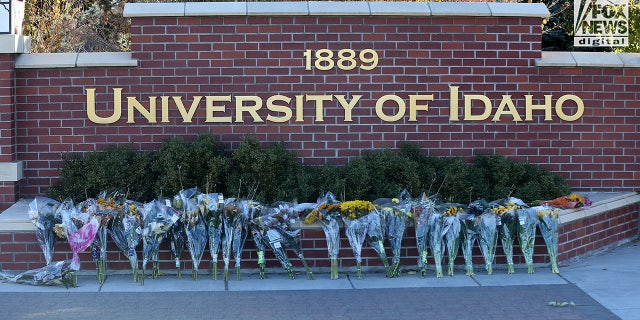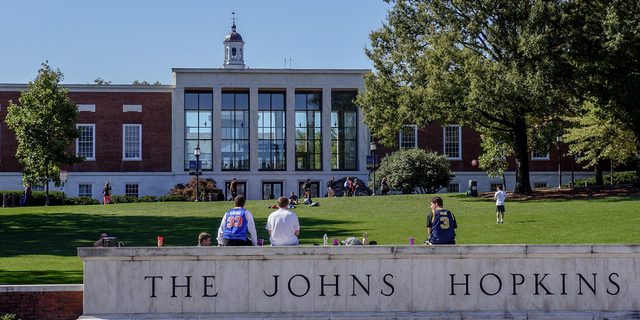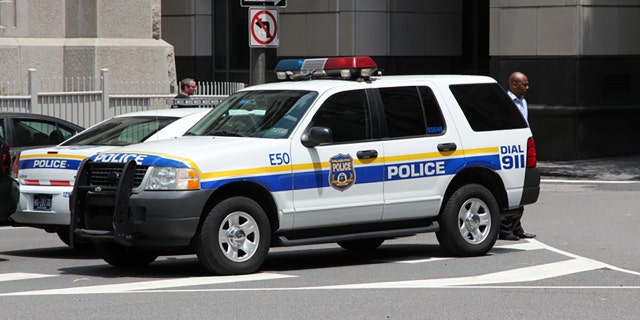Violent crimes have throttled cities across the country in recent years, and reports show that crime incidents are inching closer to some college campuses in recent days, igniting fear among some students and parents on how to bolster personal safety.
“We all want … students to be able to live on campuses in order to spread their wings away from home — but it is the partnership and good communication between university security officials, students and parents that will ultimately provide for the best security platform in and around a particular school setting,” Robert McDonald, a former Secret Service agent and criminal justice expert at the University of New Haven, told Fox News Digital.
Violent crime erupted across the country in 2020, with murders spiking by nearly 30% compared to the year prior, according to FBI data, which marked the largest single-year increase in killings since the agency began tracking the crimes. The crime rate exploded at a time when society was upended by lockdown orders stemming from the COVID-19 pandemic, calls to defund police departments echoed across the country — including on college campuses — and repeated nights of protests and riots following the murder of George Floyd in Minneapolis.
Nearly two years later, many cities are still coping with the recent crime trend, including higher than usual rates of murders, carjackings, assaults and other crimes.
UNIVERSITY STUDENTS IN BIG CITIES WITH SURGING CRIME AFRAID TO LEAVE CAMPUS: ‘I WOULDN’T GO THERE’
Violent crimes have throttled cities across the country in recent years, and reports show that crime incidents are inching closer to some college campuses.
(Elina Shirazi)
College campuses have historically and primarily dealt with crimes such as burglary and sexual assault, data from the National Center for Education Statistics show. But in the last few weeks alone, headlines across the nation have shown brutal shootings and murders on campuses, threats of rape, dorm intruders and armed robberies creeping closer to campus.
Students at New York University are reporting that they are on high alert after a string of incidents in which intruders have skirted security and entered dorms, including in one case where an intruder allegedly watched a student sleep.
“I almost feel safer not living in a dorm,” Ishi Gupta, a 21-year-old senior, told the New York Post. “NYU students are paying so much tuition and the dorms are so expensive, and to not feel safe in them is kind of unacceptable.”

Students at New York University are reporting that they are on high alert after a string of incidents in which intruders have skirted security and entered dorms.
(Spencer Platt/Getty Images)
While students at the University of Washington recently sounded the alarm on how a handful of registered sex offenders live near the Seattle campus, and the students reported arming themselves with pepper spray.
In even more tragic incidents, a community in Idaho is grieving after four students at the University of Idaho were found fatally stabbed in a house off campus. And in Virginia, the University of Virginia campus is coping with a devastating shooting that left three school football players dead, another player injured and yet another student injured.
UNIVERSITY OF IDAHO MURDERS TIMELINE: WHAT WE KNOW ABOUT THE SLAUGHTER OF FOUR STUDENTS

Flowers are displayed at an improvised memorial at the University of Idaho in Moscow, Idaho, Nov. 21, 2022, for four of its students who were slain on Nov. 13.
(Derek Shook for Fox News Digital)
McDonald said that in addition to students always having a firm understanding of their surroundings while living on college campuses, they need to get “back to the basics” and communicate with family and friends on where and when they go out in order to better protect themselves.
“There is a need for getting back to the basics with respect to communicating with family and friends on where students are going, who they are going with and reporting to someone when they leave a location and when they arrive at the next location or home,” McDonald told Fox News Digital. “Students sometimes don’t like to feel like they need to report to anyone, but someone having knowledge of their locations and travel plans can assist with overall safety concerns. Additionally, moving about with a friend or a group setting will also contribute to a safer environment than going out to locations alone.”
Many schools across the country, most notably grade and high schools, increased security measures over the summer following the tragic shooting in Uvalde, Texas, which left 19 students and two teachers dead. At the college level, some school leaders have announced more police and public safety officer presence on campuses in the face of crime, including at the University of Idaho and at Johns Hopkins.

At the college level, some school leaders have announced more police and public safety officer presence on campuses in the face of crime, including at the University of Idaho and at Johns Hopkins.
(JHU Sheridan Libraries/Gado/Getty Images)
“In response to these crimes, we immediately altered our public safety deployment to provide an increased presence and focus on the areas that have been most impacted by these incidents. … These officers will be patrolling both in vehicles and on foot 24-7,” Johns Hopkins University’s vice president for public safety wrote in a message to the school community last month after a “disturbing increase in serious violent crimes,” including a string of armed robberies.
Parents have also increasingly sounded the alarm in recent days on crimes creeping closer to campuses, including at Temple University in Philadelphia where parents say crime has been an issue for years. A group of parents at the school even banded together earlier this year to hire private security to better protect the campus following the murder of a student and other crimes near campus.
“As a parent of a student at Temple University, it’s sad to say, but you almost expect something bad to happen, something very negative to happen to your student down here. I have,” a parent of Temple student told WPVI earlier this month.

Parents have also increasingly sounded the alarm in recent days on crimes creeping closer to campuses, including at Temple University in Philadelphia.
(iStock)
McDonald reiterated the importance of communication when explaining how parents can play a role in their child’s safety when they are living away from home.
“Good communication and discussion between parents and students can allow the student’s locations to be known by the parents, and conversely, the parents can feel a sense of what their children are engaging in and the locations that they are frequenting. Any exchange of information can only increase the level of security experienced, as well as should something bad happen, assist law enforcement with locations for investigation and the development of timelines surrounding the movements of the students,” he said.
CLICK HERE TO GET THE FOX NEWS APP
“Parents should also be talking to their college students on a regular basis in order to make sure the students are feeling safe, not experiencing any issues with stalkers or bullies, and to have a handle on what the students are experiencing at school.”